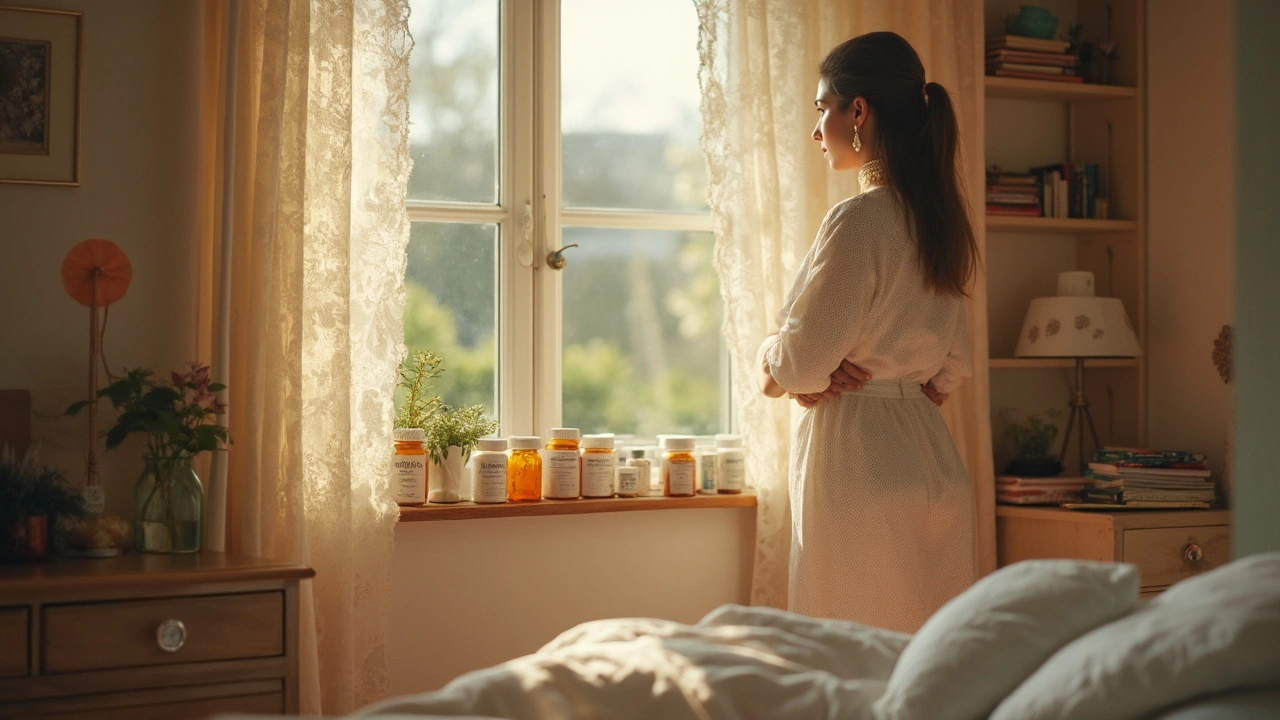Insomnia Treatment: Find Fast Relief Tonight
Can't fall asleep? You're not alone. Millions wake up feeling tired because they struggled to get any shut‑eye. The good news is there are simple steps and safe medicines that can turn those sleepless nights into restful ones. Below you'll get practical tips you can try right now, plus a quick look at the most common sleep‑aiding drugs.
Lifestyle Changes That Actually Help
First, check your bedroom routine. A cool, dark room signals your brain that it’s time to wind down. Turn off bright screens at least an hour before bed – phones, TVs, laptops – they blast blue light that tricks your body into staying awake.
Stick to a regular sleep schedule. Go to bed and wake up at the same time every day, even on weekends. Your body loves consistency and will start to feel sleepy at the right hour.Watch what you eat and drink in the evening. Caffeine and nicotine stay in your system for hours, so skip coffee, tea, and cigarettes after mid‑afternoon. Alcohol might make you drowsy at first, but it disrupts deep sleep later in the night.
Gentle movement earlier in the day can boost sleep quality. A 20‑minute walk or light yoga helps reduce stress without raising your heart rate too much before bedtime.
If thoughts keep racing, try a quick brain dump. Write down worries or to‑do items on a notepad, then close the notebook. This signals to your mind that you’ve moved the worries out of the room.
Medication & Supplements Overview
When lifestyle tweaks aren’t enough, short‑term sleep aids can bridge the gap. Over‑the‑counter options like diphenhydramine (found in many night‑time antihistamines) work for a few nights but can cause next‑day grogginess. Use them sparingly.
Melatonin is a natural hormone that tells your body when it’s dark. A low dose (0.5‑3 mg) 30 minutes before bed can reset your clock, especially if you travel across time zones or work night shifts.
Prescription meds such as zolpidem or eszopiclone are stronger and meant for short‑term use only. Your doctor will weigh benefits against risks like dependence or morning drowsiness.
For those who prefer plant‑based options, valerian root and chamomile tea have mild calming effects. The science is mixed, but many people find them helpful without side effects.
Always talk to a pharmacist or doctor before mixing sleep aids with other meds, especially antidepressants or painkillers. Interactions can make you feel woozy or affect your heart rate.
Finally, keep track of what works. Write down the time you take a supplement, the dosage, and how you feel in the morning. This simple log helps you and your health provider spot patterns and adjust treatment.
Insomnia doesn't have to rule your life. Start with a few bedroom changes, add a safe supplement if needed, and don't hesitate to ask a professional for tailored advice. Sleep better tonight – your body and mind will thank you.
Exploring Effective Alternatives to Diphenhydramine for Better Sleep and Allergy Relief
Diphenhydramine is a popular medication for allergies and insomnia, but many alternatives offer similar benefits with different side effects profiles. Unveiling the advantages and drawbacks of alternatives like Doxepin, this guide aids in making informed choices tailored to individual needs. Comparing these alternatives highlights options that might suit individuals better, ensuring both effective treatment and minimized discomfort.

